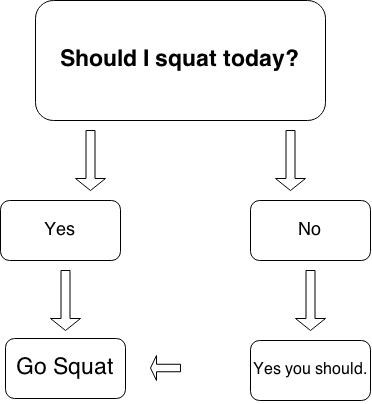I have a theory about why weightlifters are such great people.
Most sports are based on an antagonistic relationship between two opponents. Imagine football. Two teams, who each want something completely different from the other. One to move forward, one to push back. Their fans scream their support of their favorites and their derision of the other team. It’s “us” against “them”.
Now imagine weightlifting. In competition, you cannot change your strategy in any profound or meaningful way in response to what anyone else does. Yeah, you can play with stated attempts a little to gain a minute or two more rest between lifts. But realistically, it’s a sport where what you do on the platform arises from the training you put in before you showed up. You can’t suddenly add 10kg to your snatch just because somebody else is stronger than you are. In a very singular way you compete against you and your preparation, not against anybody else.
So weightlifting meets tend to feel much less like a giant sporting event, and more like a collegial get together of like minded friends. Complete strangers help each other out. Complete strangers cheer for your attempts. Complete strangers share a platform and maybe a protein bar.
Weightlifting also requires enormous self discipline. You’ve got to be a fairly mature and dedicated individual to repeat the same two lifts over and over again, making tiny incremental changes in technique and gaining infinitesimally small leaps in power (ok maybe some leap faster, but I leap slowly).
The people who gravitate to the sport are therefore not like the average athlete. They’re friendly, they’re smart and they’re kind. Winning!
At weightlifting camp the gym rules were written on the white board from day 1. They were:
-Be an adult
-Don’t be an asshole
-Don’t fuck up tomorrow’s workout
My interpretation of these is: clean up after yourself, nobody’s your mama and nobody else is responsible for putting your weights away where they’re safe from hurting somebody else by a stray bouncing barbell. Be positive and supportive, don’t whine and grumble and bitch when your attempts aren’t going the way you’d like thus making life miserable for everyone around you. And don’t bro out, trying to impress everyone with how mighty you are to the point where you’ll be too sore to lift tomorrow.
Because these are the rules, the people who stay to be part of the Asheville Strength family are a profoundly wonderful bunch. I met jaw droppingly strong people, both men and women. I met some who were just starting out, some who were visiting from other sports to train over school break, some seasoned veterans. All were supportive both verbally and by their actions. They help find and load weights. They encouraged one another. They teased each other lovingly to keep things light.
The coaches, Tamara and Nick, seemed to have an intuitive sense of what each athlete needed. They never gave anybody more cues than they could handle at one time. So nobody felt hopeless, like there was no way as adult learners we could possibly get all this which I often hear from my fellow masters newbies. They emphasized the important points, what you need to actually make a lift in competition. Not the minutiae of bar path and jumping vs. catapulting or whatever else keyboard jockeys argue about on YouTube.
What did they do for me? I hit two consecutive snatch PRs because Tamara loaded my bar blind and wouldn’t let me know what was on it. That let me get out of the scaredy cat part of my head that kept me from hitting lifts that I knew I should be able to make. And I cannot emphasize how important that accomplishment was to making me better going forward. They also encouraged me to get the bar a little more aggressively over and back on lockout among other good tips.
So I left Asheville with a whole lot of new friends and a competitive team to call my very own (squeeeeee!). So many people I’m proud to have worked with and with whom I’ll be honored to compete along side in the future.
Any wonder why I love this sport so much?
